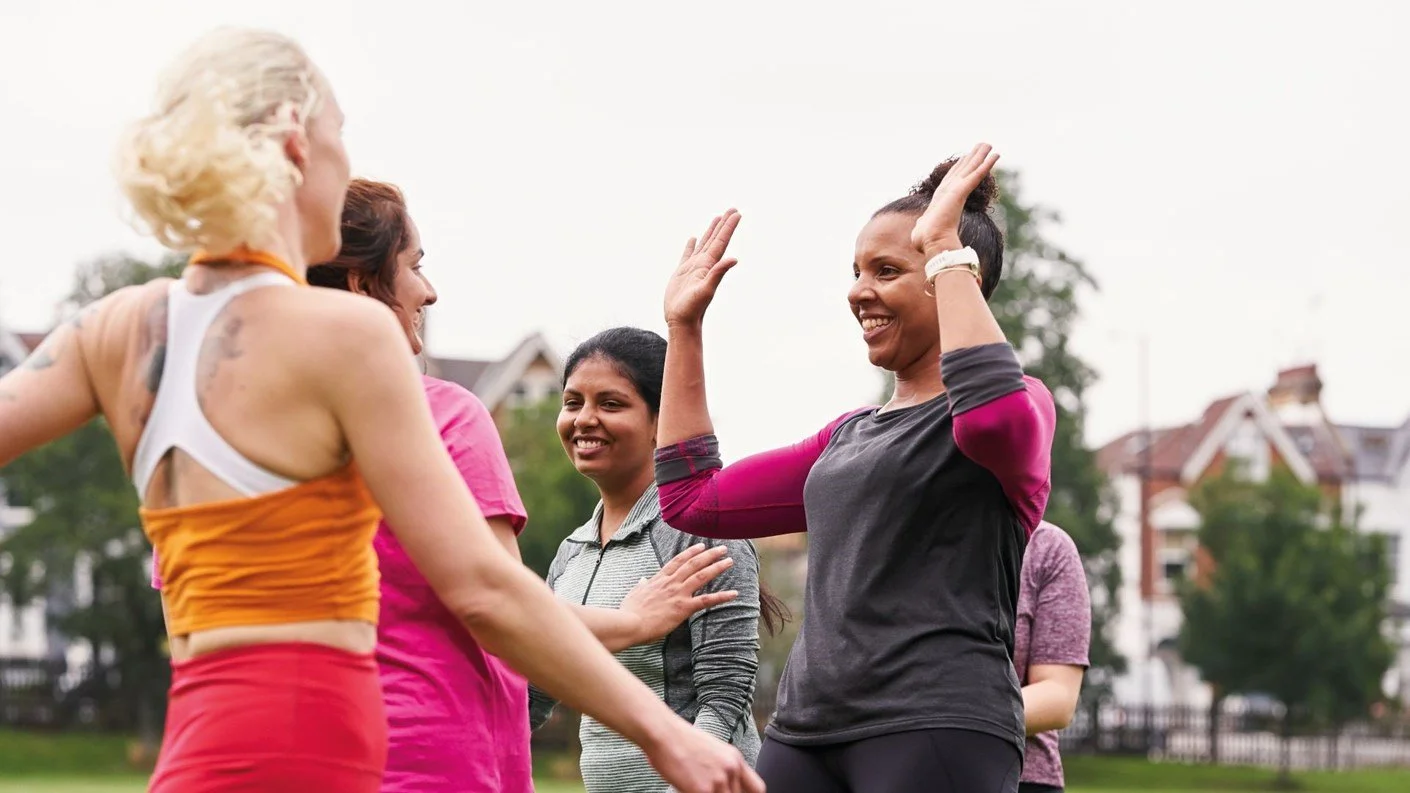Your 60s represent a vibrant decade filled with opportunities for growth, wellness, and fulfillment. Aging gracefully during this time involves intentional choices across physical health, mental wellness, social engagement, and preventive care. This comprehensive guide provides evidence-based strategies and healthy aging tips to help you thrive in your sixth decade, maintaining energy, cognitive sharpness, and quality of life while embracing this transformative phase with confidence and vitality.
Understanding What It Means to Age Gracefully in Your 60s
Aging gracefully isn’t about trying to look 40. It’s about feeling your best, staying healthy, and living a life full of purpose. In your 60s, this often means navigating new transitions like retirement or changing family roles. The focus shifts from a destination to a daily practice of intentional choices that support your independence, resilience, and joy. It’s about having the energy to play with your grandkids, the mental clarity to learn a new language, and the emotional balance to savor each day.
How to Age Gracefully in Your 60s: Prioritizing Physical Activity and Exercise
Movement is a cornerstone of healthy aging. The Centers for Disease Control and Prevention (CDC) recommends that adults 65 and older get at least 150 minutes of moderate-intensity activity a week, plus two days of muscle-strengthening activity. Regular exercise helps maintain muscle mass, strengthens bones, and lowers the risk for chronic diseases. The key is finding activities you enjoy, because consistency is what matters most. Remember, any movement is better than none when it comes to staying active as you age.

Strength Training and Balance Exercises
After age 30, you can lose as much as 3-5% of your muscle mass per decade. Strength training helps counteract this. It preserves bone density and keeps you strong for daily tasks. Balance exercises are just as crucial, as they significantly reduce the risk of falls—a major health concern for older adults. You don’t need a gym; bodyweight exercises, resistance bands, and light dumbbells are effective tools. Exploring expert tips for fall prevention can provide additional guidance for maintaining stability and confidence.
Cardiovascular and Flexibility Work
Activities that get your heart rate up are essential for cardiovascular health. Think brisk walking, swimming, dancing, or cycling. These exercises help manage blood pressure and keep your heart strong. Flexibility work, like stretching or yoga, maintains your range of motion, reduces stiffness, and helps prevent injuries. A simple daily stretching routine can make a world of difference in how you feel.
Maintaining a Balanced, Nutrient-Rich Diet
What you eat directly impacts your energy levels, bone health, and immune function. In your 60s, focus on a nutrient-rich diet. Prioritize lean protein to support muscle health, calcium and vitamin D for strong bones, and high-fiber foods for digestive wellness. According to Harvard Health, loading your plate with fruits, vegetables, whole grains, and healthy fats can protect your body from cellular damage. Dietary patterns like the Mediterranean diet have been widely studied and are linked to better health outcomes in older adults. Don’t forget to stay hydrated and limit processed foods, sugar, and sodium.
Keeping Your Brain Active and Cognitively Sharp
Your brain, like any muscle, benefits from a good workout. Engaging in mentally stimulating activities helps build new neural pathways and can help fend off cognitive decline. Step outside your comfort zone. Learn a new instrument, take up a language, or try a class at a local community college. Simple habits like doing crossword puzzles, reading widely, or even taking a different route on your daily walk can keep your brain agile and sharp.
Nurturing Mental Health and Emotional Wellness
Your emotional health is just as important as your physical health. The 60s can bring significant life changes that may impact your mood and outlook. It’s important to acknowledge your feelings and develop healthy coping mechanisms. Practices like mindfulness, meditation, and gratitude journaling can help manage stress and cultivate a positive mindset. Don’t hesitate to seek professional support if you feel overwhelmed. Regular depression screening is also a key part of preventive healthcare.
Building and Maintaining Social Connections
Strong social ties are a powerful predictor of health and longevity. Research shows that older adults with robust social connections have a 50% increased likelihood of survival. Yet, social isolation is a common problem. Make an effort to connect with friends and family regularly. Join a club, volunteer for a cause you care about, or take a group exercise class. These activities provide a sense of belonging and purpose, which are vital for your well-being. It’s about the quality of your connections, not just the quantity.

Getting Consistent, Quality Sleep
Sleep is when your body and brain repair and recharge. Aim for 7-8 hours of quality sleep per night. As we age, sleep patterns can change, but you can improve your sleep quality with good habits. Stick to a regular sleep schedule, even on weekends. Create a relaxing bedtime routine, and make sure your bedroom is dark, cool, and quiet. Getting morning sunlight exposure can also help regulate your internal clock. Limiting screen time before bed is another simple yet effective strategy.
Staying Current with Preventive Healthcare
Regular check-ups and screenings are your best tool for early detection and prevention. Work with your doctor to stay on top of recommended health screenings for your 60s. These typically include:
- Annual wellness visits to monitor blood pressure, cholesterol, and overall health.
- Cancer screenings, such as for colorectal, breast, and prostate cancers.
- Bone density scans, especially for women over 65.
- Vision and hearing tests.
- Vaccinations, including the annual flu shot and vaccines for shingles, pneumonia, and RSV.
Being proactive about your health empowers you to manage any issues before they become more serious.
Caring for Your Skin and Appearance
Skin changes in your 60s, becoming thinner, drier, and less elastic. A simple skincare routine can help keep it healthy. Use a gentle cleanser, a rich moisturizer to support the skin barrier, and most importantly, a broad-spectrum sunscreen with SPF 30 or higher every single day. Sun protection is the single most effective way to prevent further skin aging. Ingredients like retinoids can help, but consistency with the basics is what truly matters.
Finding Purpose and Pursuing Meaningful Activities
Retirement can open up 40+ hours a week. Filling that time with activities that bring you joy and a sense of purpose is crucial for mental and emotional health. Reconnect with old hobbies or explore new ones. Have you always wanted to learn to paint, garden, or play the guitar? Now is the time. Volunteering is another excellent way to stay engaged and contribute to your community. Meaningful engagement is a powerful ingredient for a fulfilling life.

Managing Weight and Chronic Conditions
Metabolism naturally slows with age, making weight management more challenging. A combination of a healthy diet and regular physical activity is the best approach to maintaining a healthy weight. If you are living with overweight, even a modest weight loss of 5-10% can dramatically improve health markers. Many chronic conditions like hypertension or type 2 diabetes are common in this decade. Working closely with your healthcare provider to manage these conditions through medication, lifestyle, and regular monitoring is essential for your long-term health.
Conclusion:
Aging gracefully in your 60s is an active, ongoing process of nurturing your mind, body, and spirit. It’s about embracing change with a positive outlook and making intentional choices that support your health and happiness. By focusing on these key areas, you can make your sixth decade one of vitality, growth, and deep fulfillment. For a broader perspective on longevity, you can explore our guide on how can we live longer. Here at www.notonetype.org, we believe in empowering you with the knowledge to live your best life at every age.


Có thể bạn quan tâm
How to Make Friends in Your Fifties: Proven Strategies to Build Meaningful Connections
Making friends in your fifties can feel like a unique challenge, but it’s far from...
Nov
How to Make Friends as an Older Woman: 12 Proven Ways
Making friends as an older woman is not only possible but essential for your mental...
Nov
Complete Guide to Fall Prevention: Tips to Keep Seniors Safe and Independent
Falls represent one of the most serious health threats facing older adults today. According to...
Nov
Staying Active as You Age: A Complete Guide to Exercise and Fitness for Older Adults
Staying active as you age is one of the most powerful choices you can make...
Nov
How to Be Healthy at 50: A Complete Wellness Guide for Women
Turning 50 is a significant milestone. It’s a time of transition, reflection, and new opportunities,...
Nov
Healthy Aging Tips: 10 Ways to Age Well in 2025
Aging is inevitable, but how you age is largely within your control. Research shows that...
Nov